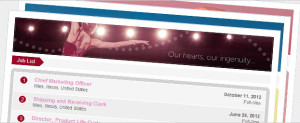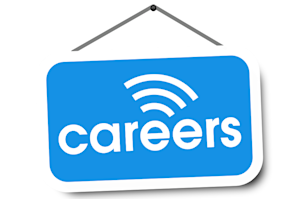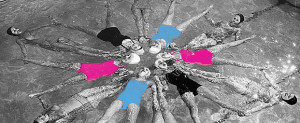
How do you know if you’re living up to your potential?
Have you ever heard of the expression “Fear Of Success”? Could you be undermining yourself and your career goals simply by not living up to your full potential?
If this is a problem for you, one of the first warning signs you may become aware of is that you begin to feel unfulfilled or unsatisfied in your job role, and might feel pessimistic about your future. Here’s how to unlock your true potential and achieve your career goals in 4 strategic steps and how to know when you’ve reached your goal of living up to your true professional self.
What is “full potential”?
Your potential can be seen as the latent qualities or abilities you might develop which will lead to your future success. These are individual to the person, and are therefore unique. Everyone’s full potential will be different and only you can truly assess what your full potential is. It’s a personal journey which can be useful in the framework of your career and professional goals.
Why is reaching your full potential important for your career?
“Changing your life for the better is about picking a destination and taking one step at a time to get there,” explains Dr Barton Goldsmith, a US-based psychotherapist. “If you try to take shortcuts, you may end up making your journey long and arduous. Being serious about making improvements is a great start.”
“Emotional fitness” can be applied in all areas of our lives but when we focus on unleashing our inner capabilities in a workplace setting we can begin to feel more aligned with our goals, both large and small. “When you stop to remember what you have instead of worrying about what you don’t have or may not be getting, it changes your perspective for the better,” explains Goldsmith.
The time spent doing meaningful work vs. “busy work”
Do you find the work you do meaningful? Are your daily tasks engaging enough to sustain your ongoing interest? Or do you sometimes feel that what you contribute is valueless, or just “busy work”? It’s not essential to assign meaning to every single element of your work but studies show that employee engagement is something that leads to both a company’s and an individual’s success.
In fact, according to a recent Gallup poll, 40% of Millennials says that it’s essential that they are “living their purpose” at work yet 51% of employees polled were “not engaged” in their roles, while 16% claimed to be “actively disengaged” – a worrying metric.
4 strategies to reach your full potential
If you suspect that you are not living up to your full potential and have more to give, there are 4 main strategies you can implement to help you identify your strengths and be more engaged in your current role, or to find your true path in a different role, via a career change.
#1: Set your intention: “People who achieve greatness in their lives don’t get there by chance; they know their purpose when they start their personal journey, and they kept that intention alive as they proceed,” says Kevin Kruse from Forbes Magazine. You can’t get what you want unless you identify it and focus on it. Spend time journaling, plotting or planning – from “big ideas” to the minutiae of life.
#2: Set realistic goals: According to a study by Bain.com the bulk of strategies actually achieve less than 50% of what they initially set out to accomplish. Aim to make small steps towards achieving your goals. “A strategy only 80% perfect but fully implemented almost always proves more valuable than an intellectually perfect strategy that is implemented incompletely.” Give yourself room to move.
#3: Try something new: If you feel your career has stalled, could you train in a completely new area? Could you consider a job in security or gain qualifications as a personal trainer? There are millions of stories online and from history that demonstrate that people can often find their feet within second or even third careers. Colonel Sanders (of KFC fame!) hit his strides at age 65 and Charles Darwin’s breakthrough study On The Origin of Species wasn’t published until he was 50 years old.
#4: Know yourself: Harvard Business Review points out that you are unlikely to really feel fulfilled in life if you don’t know yourself inside and out. Often the things we think we want are not the things we really want or are not the things that will bring us ultimate fulfilment. “Taking responsibility for your career starts with an accurate assessment of your current skills and performance,” says Harvard. “Write down your two or three greatest strengths and your two or three most significant weaknesses” as a starting point.
4 signs that you are working at your full potential
Once you’ve worked on the strategies above you can begin to feel more fulfilled in your daily tasks and your future career. Here are several signs that you can note when you’ve truly reached your full potential.
You feel fulfilled: Your work becomes meaningful and even small tasks take on a new lease of life. You begin to see the importance of the day-to-day tasks such as reporting, meetings and regular time with your direct manager.
You feel engaged: You have more stamina at work for tasks that used to bore you or that you had to “force” yourself to do. Engaged employees feel better, take fewer sick days and progress up the management chain more quickly.
You feel happy at work: You come to the office or workplace with a spring in your step, ready to tackle what the day brings. You might notice yourself feeling cheerier, talking more to colleagues and generally getting more done.
You feel excited about the future: The most important sign that you are operating at your full potential is that you feel excited about your future again. Having a goal in mind, even if it’s a small goal, can help to keep us focused on forward momentum.
Yvette McKenzie is a writer for Secta Security. She works for a leading online educator and has a background in broadcast media, with a passion for digital marketing, SEO, promotions, journalism and content strategy.



